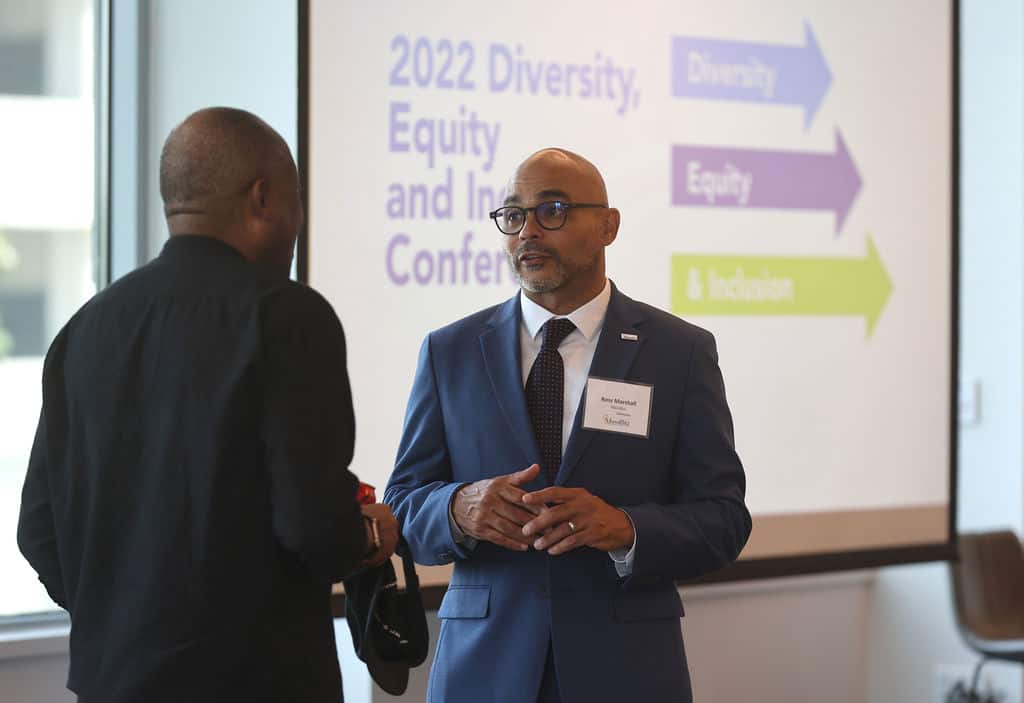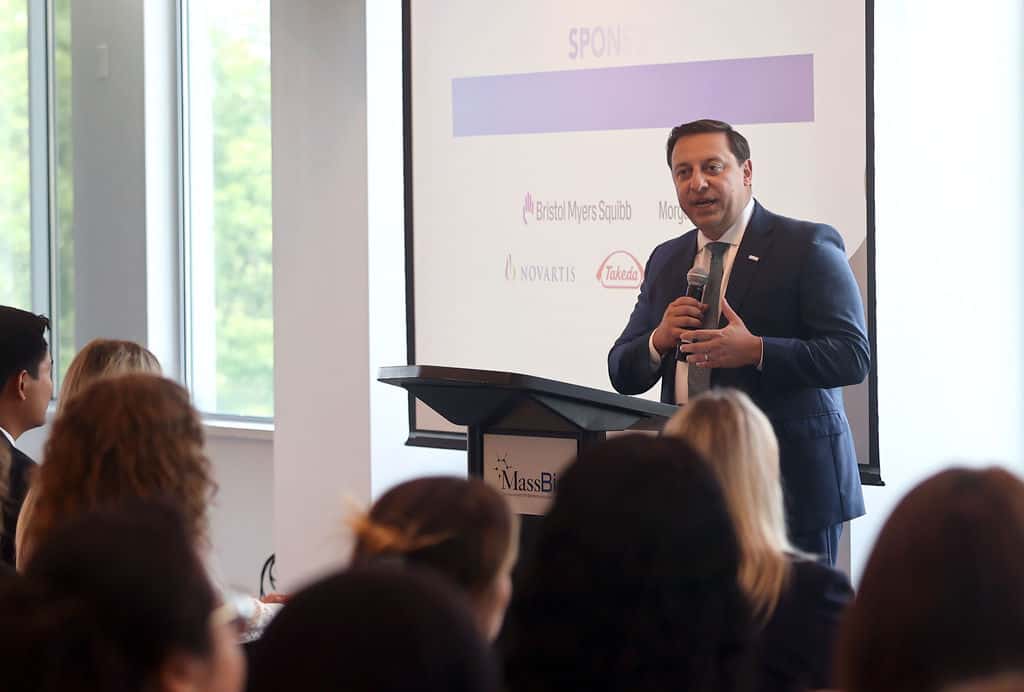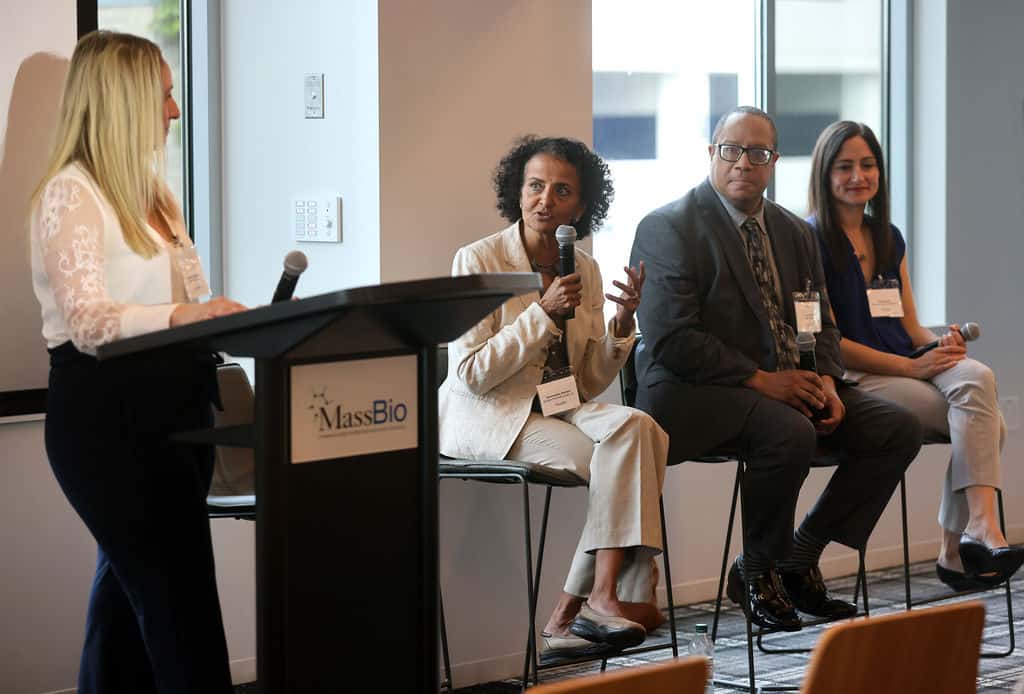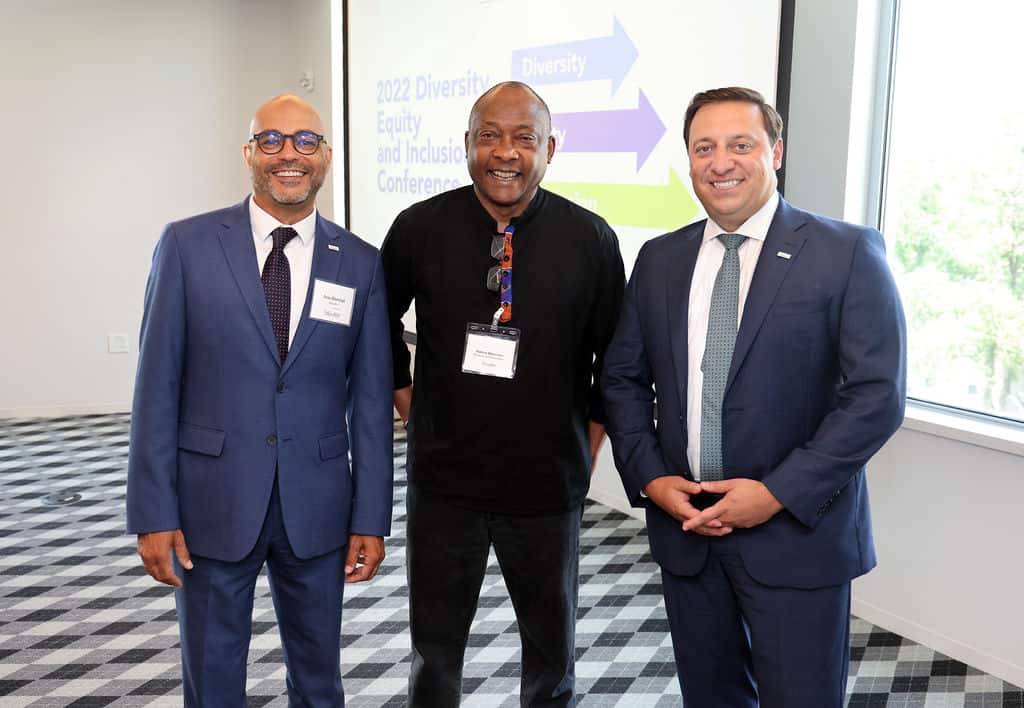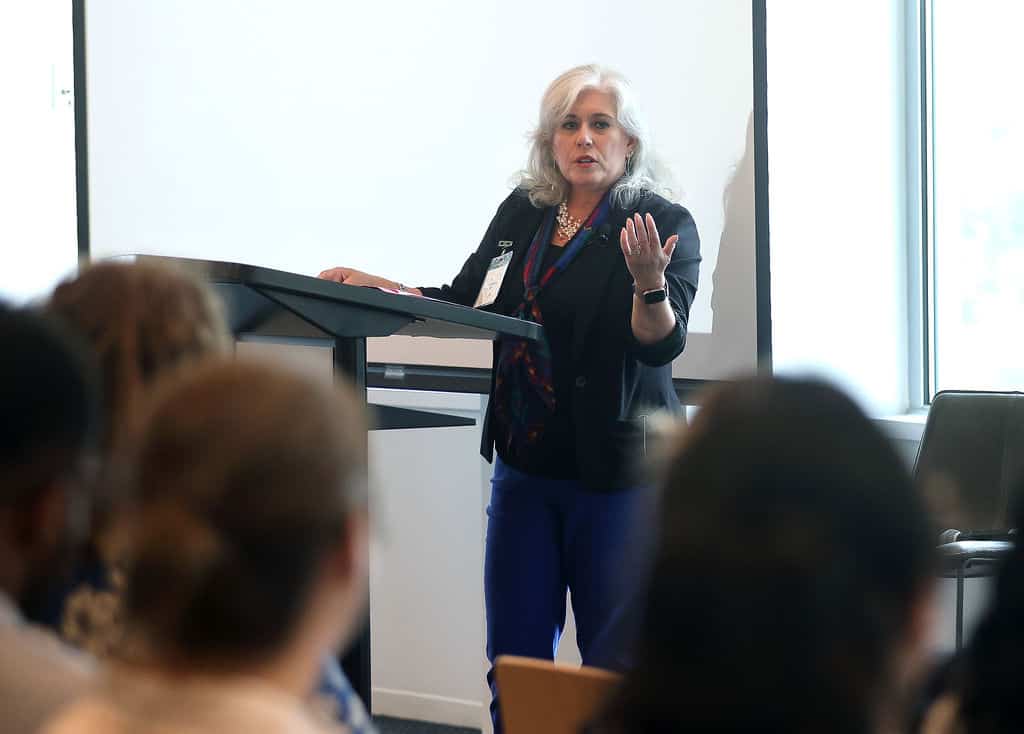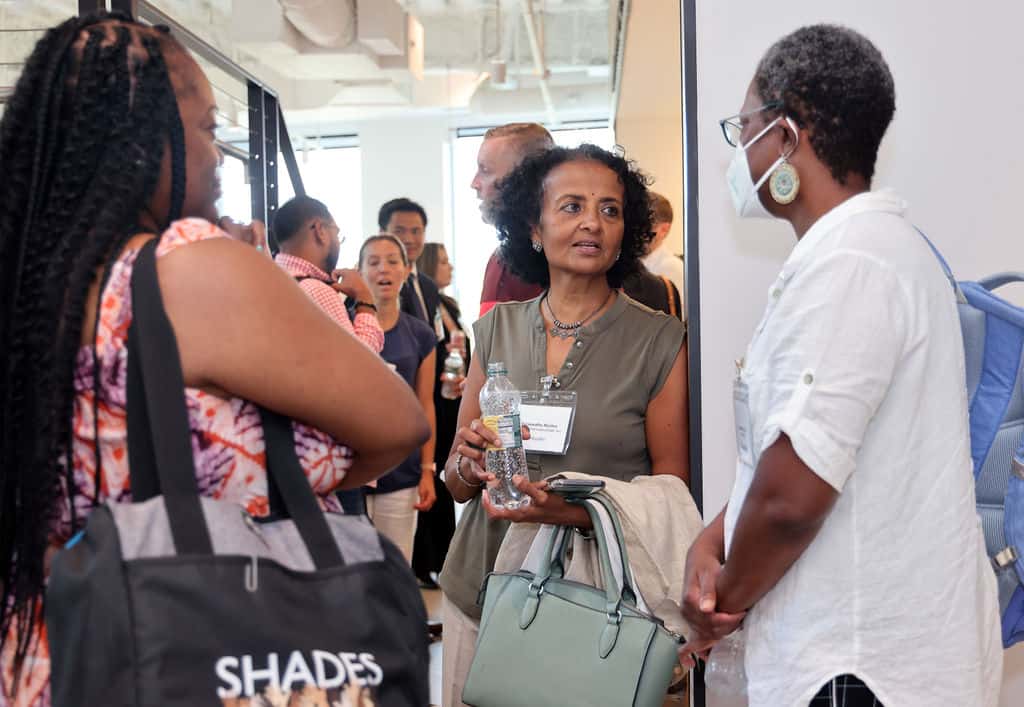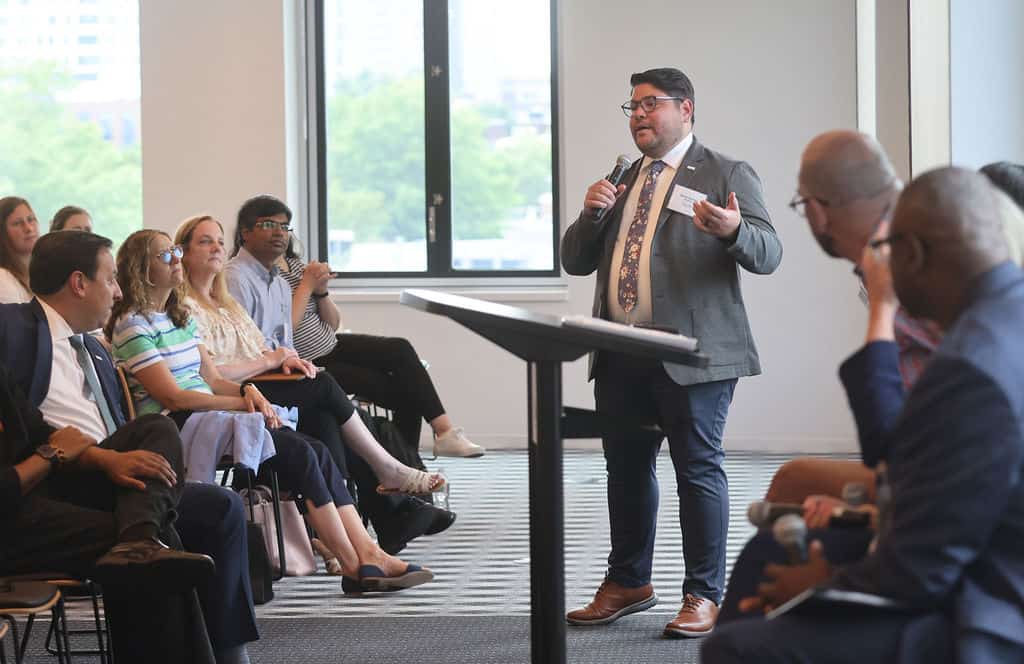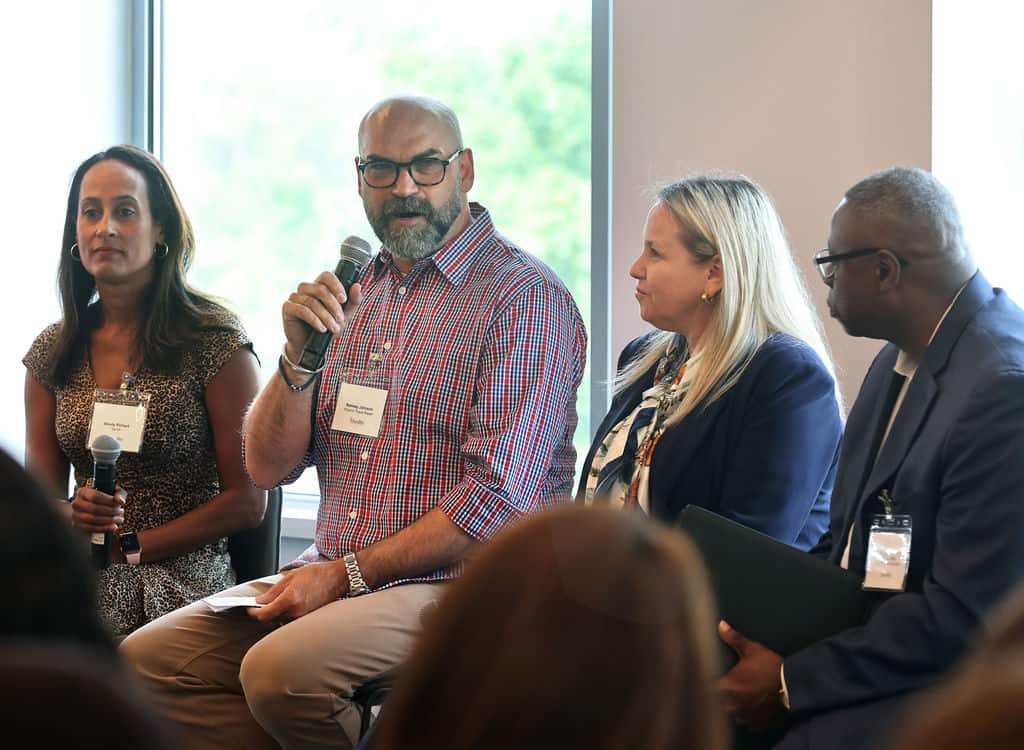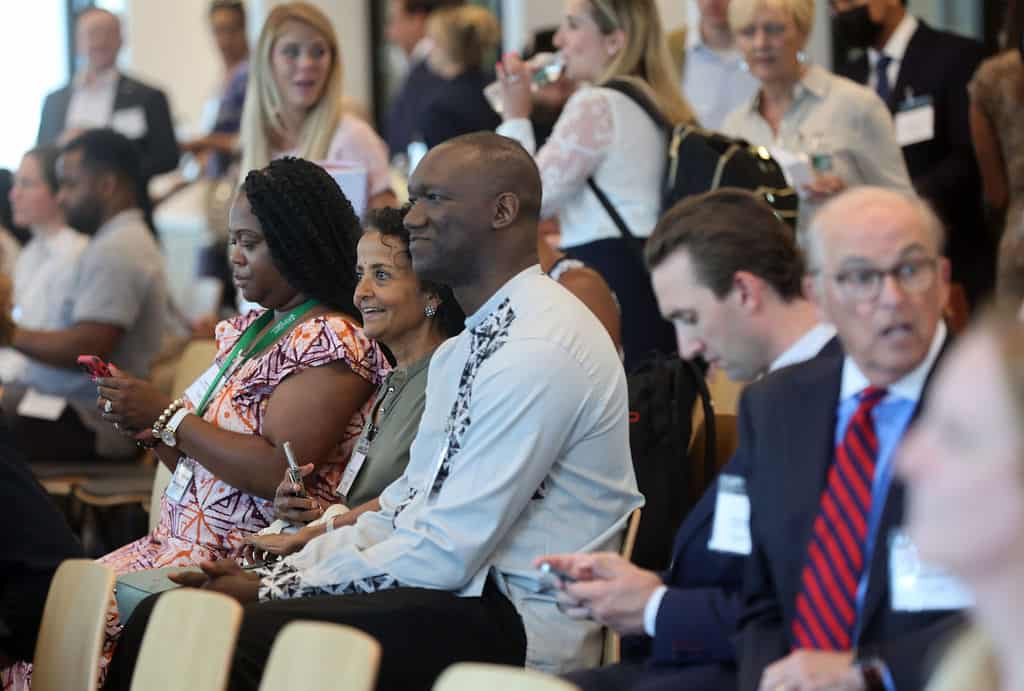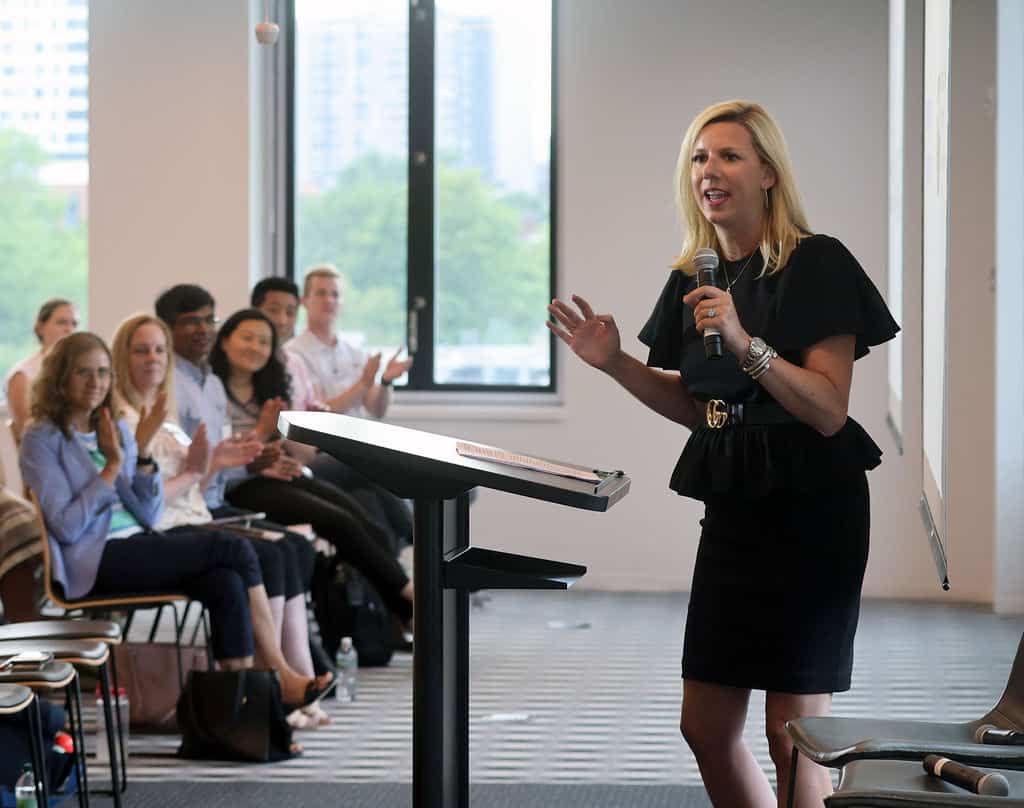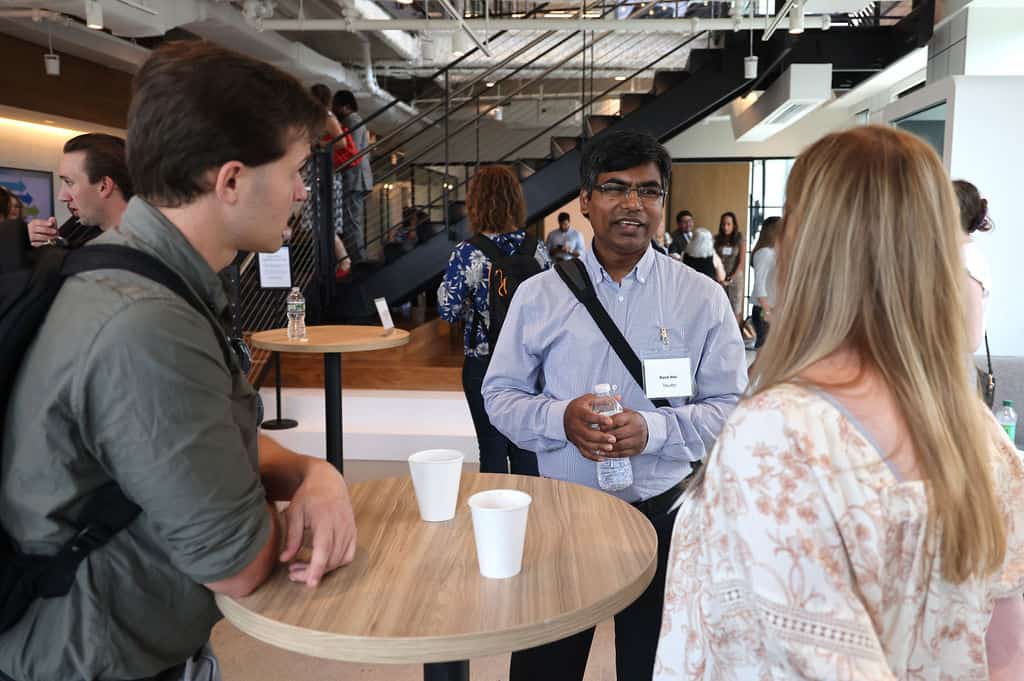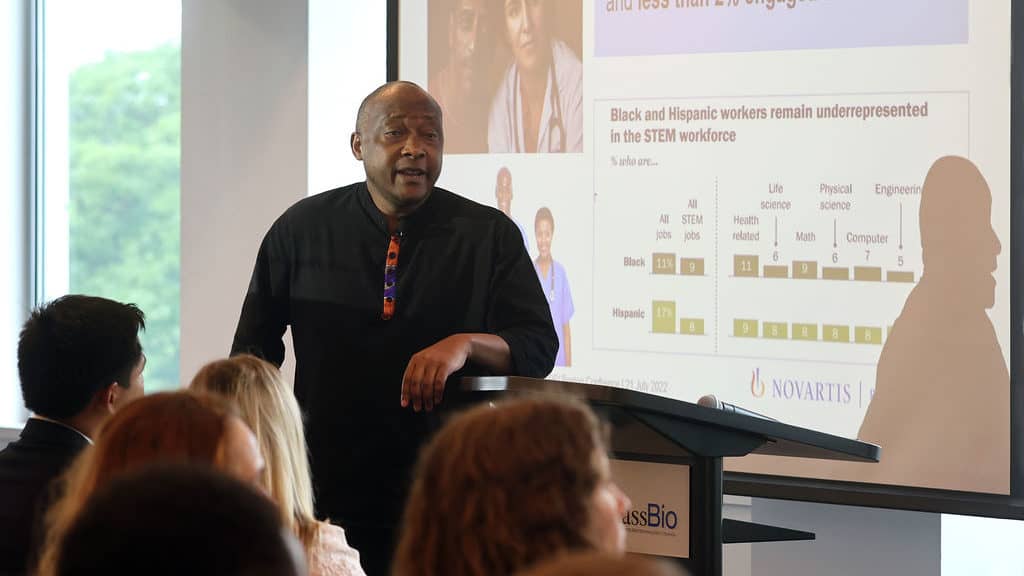
As a country, we learned from this global pandemic the value of science, crisis preparedness, what information to believe, and which leaders to follow. Throughout it all, industry collaboration was key to improvement. Diversity, equity, and inclusion resources, experiences, and perspectives were vital to the development of effective diagnostics, therapies, and vaccines. The life sciences industry demonstrated that diversity is fundamental to innovation, creativity, and navigating this unprecedented crisis.
In honoring this, on July 21, 2022, MassBio hosted its annual Diversity, Equity, and Inclusion Premier Conference, sponsored by Bristol Myers Squibb, Novartis, Morgan Stanley, Takeda, and Thermo Fisher Scientific. Joe Boncore, CEO of MassBio, welcomed the attendees by inviting them to implement DEI initiatives across all teams and always keep the conversation going: “though many DEI commitments have specific milestones and goals to keep us accountable, this work is never done. True change will only happen if leaders at all levels of any organization remain focused on driving DEI inside and outside, today and every day ahead.”
We were extremely fortunate to have an amazing group of experts discussing an array of relevant topics to advance DEI efforts within the life science industry. In a room full of energy and passionate colleagues, Dr. Patrice Matchaba, President of Novartis US Foundation, and opening keynote speaker, highlighted the efforts of Novartis to ensure diversity and inclusion throughout the entire R&D ecosystem in the US, especially through their recently launched Beacon of Hope Program. During his remarks, Dr. Matchaba stated that “DEI should not and cannot be limited to Human Resources efforts; it needs to be ingrained in everything we do. As patient driven organizations, we must tackle structural racial barriers to health care, and drive research and development of new therapies and cures for underserved communities”. He continued: “Systemic health inequities are like physical ailments – and getting to the root of the problem is the first step toward healing.” To enable healthcare systems to better meet patient needs, the Novartis US Foundation has partnered with the Institute for Healthcare Improvement (IHI), an independent not-for-profit organization working to advance and sustain better outcomes in health and health systems across the world. Through this partnership, they have brought together 22 additional organizations to implement an equity framework focused on:
- Making health equity a strategic priority
- Developing structures and processes to support health equity work
- Deploying specific strategies to address the multiple determinants of health on which healthcare organizations can have a direct impact
- Decreasing institutional racism within the organization
- Developing partnerships with community organizations to improve health and Equity
Dr. Matchaba concluded his keynote by inviting the attendees to incorporate Nelson Mandela’s words into our DEI efforts: “It always seems impossible, until it’s done.”
The DEI conference continued with its first panel: “The Role of Intersectionality in Recruitment and Hiring.” Moderated by Don McAuley, Director of Diversity, Inclusion, Strategy, and Operations at Thermo Fisher Scientific, the panel was composed of Carolina Alarco, President of Latinos in Bio; Ramsey Johnson, President of OutBio; and Wendy Richard, Director of Corporate Social Responsibility and Community Relations at Sanofi. During their discussion, the panel helped us to better understand the meaning of intersectionality, gave us some practical ideas on introducing it into the hiring and recruitment process, and shared real-world examples. The panel came up with the following strategies you can adopt in order to integrate an intersectional approach into your hiring process:
- Leverage Data: Use data to understand where candidates overlap and how far those in multiple demographics are making it through the hiring funnel
- Get input from current employees: Just as hiring managers may need diversity training to ensure that they’re being as fair as possible with their hiring decisions, they should also be trained on the impact of intersectionality in the workplace and how employees with multiple identities face unique challenges
- Provide training: Just as hiring managers may need diversity training to ensure that they’re being as fair as possible with their hiring decisions, they should also be trained on the impact of intersectionality in the workplace and how employees with multiple identities face unique challenges
- Look at members of hiring panels: To promote intersectional perspectives during the hiring process, it’s important to have different voices with a seat at the table. Including people with underserved identities in hiring panels is crucial because not only can they advocate on behalf of candidates, but they can also be a source of education for everyone in the group
- Explore pay inequities: Since intersectionality in the workplace is associated with pay disparities, you must look at the data in your organization to find out how your compensation may create a pay gap for those with multiple identities. If there are disparities, they need to be corrected to ensure that there is equity in compensation for everyone
The second panel of the day explored the “Future of Inclusion in an Evolving Workplace.” Moderated by Marissa MacGauley, Head of GMP at Bristol Myers Squibb, the panel, composed by Yuisa Perez, CPO at the Boston Museum of Science; Rodney Bolden, VP for Morgan Stanley; and Saraswathy Nochur, Chief DEI Officer at Alnylam Pharmaceuticals, discussed how to commit to DEI amid the COVID-19 pandemic and how to adapt DEI efforts to an ever-changing, non-linear working environment. The panel concluded that with the recent past as prologue, we can assume that no matter what we plan for, we’ll continuously find ourselves adapting to cultural impacts that are impossible to anticipate — some good, some not so good. Major shifts in the ways people work will most likely have unintended consequences on corporate cultures in ways that may put DEI initiatives at risk, but there’s also a great opportunity for change. Beyond continued investment and leadership buy-in to support DEI efforts, companies will need to keep DEI as a high-priority component of business planning around the future of work — in turn, creating DEI initiatives built for wherever and however people work.
Nereyda García, Head of Ethics and Compliance at Takeda, was invited as the second keynote speaker of the event. García shared her personal experiences and some valuable principles of inclusive leadership put into practice at Takeda. “Despite a growing appreciation for the value of Diversity, Equity & Inclusion, too often the expectation is that employees will conform to their environment or that the obligation is on the employee to drive change, rather than focusing on reshaping systems,” García said in her remarks. “Transcending this paradigm not only benefits a company’s financial performance, but also creates a more vibrant, empathetic, and fair culture where employees feel they belong.”
Kendalle Burlin O’Connell, President, and COO of MassBio was the closing speaker of the event. “At the core, the life science industry is about bringing solutions to patients. And the only way the industry can truly do that is if the industry is reflective of the patient population we serve,” said Kendalle during her remarks. “We must meet the underrepresented communities where they are—culturally, physically, in life; make entry into the life sciences easier through credential programs, community colleges, learn-and-earn opportunities, apprenticeships. Yes, we need to diversify our industry. Yes, we must be leaders in moving the needle around Equity in our industry and in our world. And yes, we must foster workplaces that are inclusive where everyone feels like they belong … because they do.”
